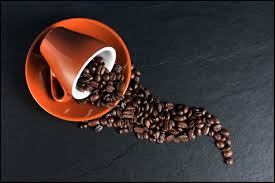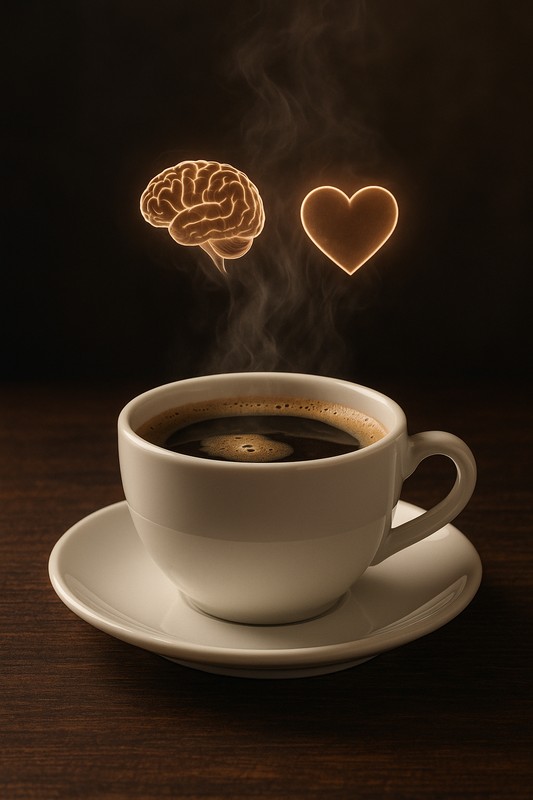
Rhodiola Rosea: A Natural Solution for Mental Fatigue and Wellbeing Backed by Science
tl;dr
Rhodiola rosea has significant animal studies backing its effectiveness; however, more recently, more human trials indicate these results to be reproducible. Effectively, rhodiola rosea studies in humans reliably indicate improvements in mental fatigue, performance, and overall mental wellbeing. Additionally, most of these studies are in highly stressed individuals, making the carry over to day to day life possibly quite high.
The Full Breakdown
The ‘golden root’, a plant originating from Europe and Asia, and widely used in multiple countries of both continents. The golden root, or rhodiola rosea as it’s more commonly known today, is touted to offer benefits in relation to fatigue, depression, nervous system disorders, and even more specific scenarios like high altitude sickness, among many other ailments [1]. However, claims are just claims until we put them to the test. While there are sizable amounts of pre-clinical studies (i.e. non-human, animal studies) indicating benefits of rhodiola rosea [1], the real test is a higher bar - clinical studies, human trials. Fortunately, while there are not many, there are a few such studies.
Mental fatigue is a constant problem in a world inundated with need for our attention, including work, home life, travel, electronics, and on. While addressing direct stressors and contributing factors to mental fatigue, including obvious changes like sleep, is the best approach, it could be useful to use supplements like rhodiola rosea. In one study [2], using young (~18 years of age) students, researchers gave rhodiola rosea to one group and a placebo (a masked non-rhodiola rosea substance) to another group and administered a battery of cognitive tests after weeks of consuming one or the other supplement. After several weeks, the data indicated several benefits of supplementation, including improved psychomotor performance (cognitively demanding tasks that require bodily movement), mental fatigue (those on the rhodiola rosea experienced less fatigue than placebo), and importantly - general wellbeing also improved.
These results were repeated by another group of researchers [3], in a similarly aged group of people - this time in military cadets rather than university students. Again, although cardiovascular measurements (i.e. blood pressure) did not improve with rhodiola rosea consumption, some of the same measures - feelings of wellbeing, fatigue - did improve in the supplementing groups. Yet another research group [4], from Sweden, corroborated these findings in their own study in more middle aged individuals. In this study, the researchers showed participants consuming rhodiola rosea had reduced feelings of burnout, although another measure of mental health did not change significantly - this could be due to the difference in testing or the fact that these individuals were people suffering from ‘fatigue syndrome’.
Beyond more well controlled studies, other studies also corroborate the mental health benefits of rhodiola rosea supplementation, especially in metrics of stress and burnout [5][6]. Unfortunately, the methodology of these studies offers some room for potential bias (not being double blind, not being randomized, etc.). Yet another study [7] in people suffering from depressive symptoms and mood regulation also experienced improvement from supplementation, and this study was well controlled.
Overall, across 6 human trials, rhodiola rosea shows significant promise as a mental benefit, from reducing mental fatigue, improving mental performance, and generally indicating improvements in mental wellbeing. What is especially remarkable is that many studies are in individuals undergoing significant stress, which makes this an ideal ‘real world’ supplement to improve daily life and why we proudly incorporate it into Elevate your Coffee.
The Reference Roundup
[1] Ivanova Stojcheva E, Quintela JC. The Effectiveness of Rhodiola rosea L. Preparations in Alleviating Various Aspects of Life-Stress Symptoms and Stress-Induced Conditions-Encouraging Clinical Evidence. Molecules. 2022;27(12):3902. Published 2022 Jun 17. doi:10.3390/molecules27123902
[2] Spasov AA, Wikman GK, Mandrikov VB, Mironova IA, Neumoin VV. A double-blind, placebo-controlled pilot study of the stimulating and adaptogenic effect of Rhodiola rosea SHR-5 extract on the fatigue of students caused by stress during an examination period with a repeated low-dose regimen. Phytomedicine. 2000;7(2):85-89. doi:10.1016/S0944-7113(00)80078-1
[3] Shevtsov VA, Zholus BI, Shervarly VI, et al. A randomized trial of two different doses of a SHR-5 Rhodiola rosea extract versus placebo and control of capacity for mental work. Phytomedicine. 2003;10(2-3):95-105. doi:10.1078/094471103321659780
[4] Olsson EM, von Schéele B, Panossian AG. A randomised, double-blind, placebo-controlled, parallel-group study of the standardised extract shr-5 of the roots of Rhodiola rosea in the treatment of subjects with stress-related fatigue. Planta Med. 2009;75(2):105-112. doi:10.1055/s-0028-1088346
[5] Kasper S, Dienel A. Multicenter, open-label, exploratory clinical trial with Rhodiola rosea extract in patients suffering from burnout symptoms. Neuropsychiatr Dis Treat. 2017;13:889-898. Published 2017 Mar 22. doi:10.2147/NDT.S120113
[6] Bystritsky A, Kerwin L, Feusner JD. A pilot study of Rhodiola rosea (Rhodax) for generalized anxiety disorder (GAD). J Altern Complement Med. 2008;14(2):175-180. doi:10.1089/acm.2007.7117
[7] Darbinyan V, Aslanyan G, Amroyan E, Gabrielyan E, Malmström C, Panossian A. Clinical trial of Rhodiola rosea L. extract SHR-5 in the treatment of mild to moderate depression [published correction appears in Nord J Psychiatry. 2007;61(6):503]. Nord J Psychiatry. 2007;61(5):343-348. doi:10.1080/08039480701643290


